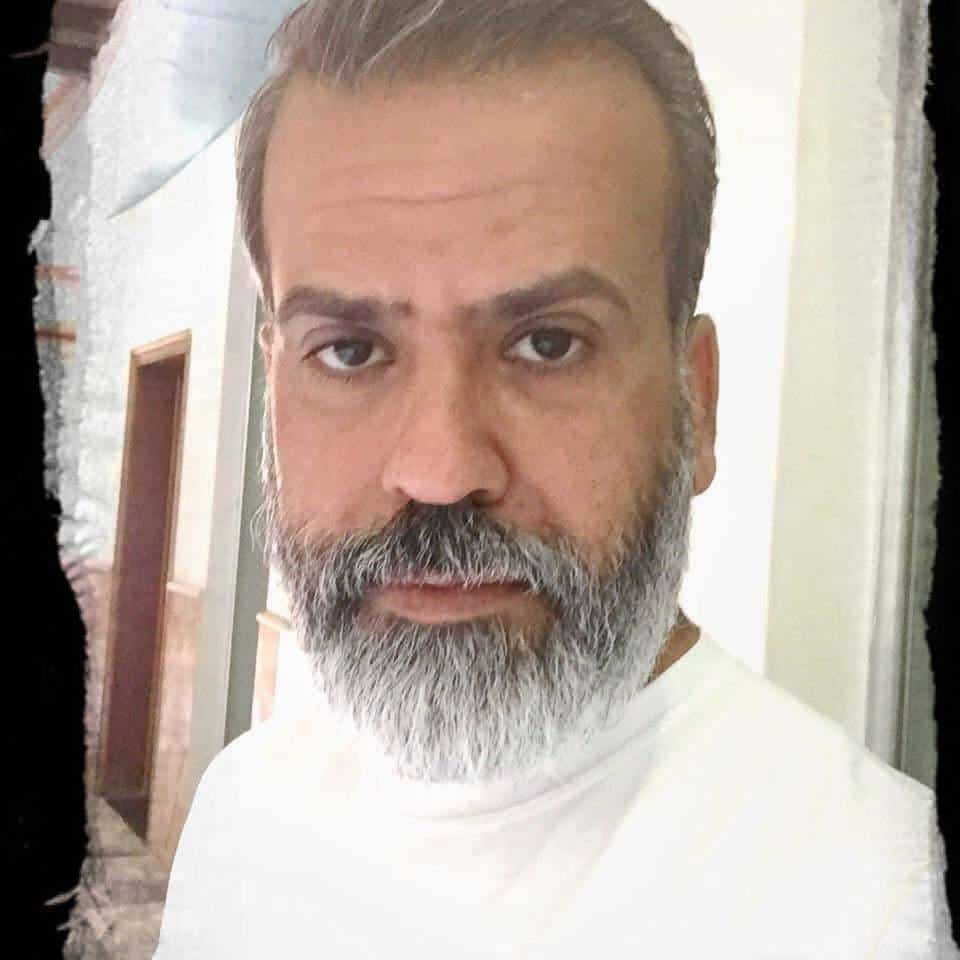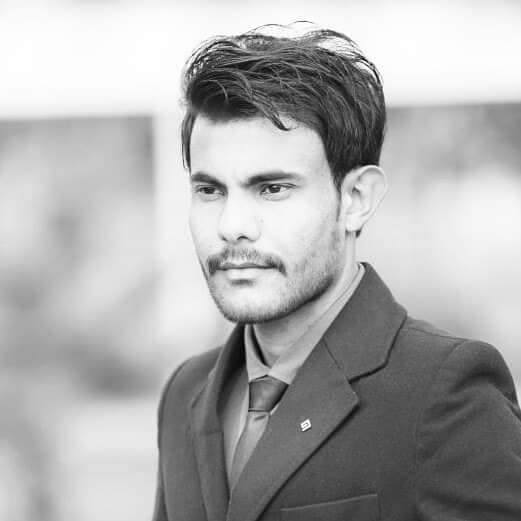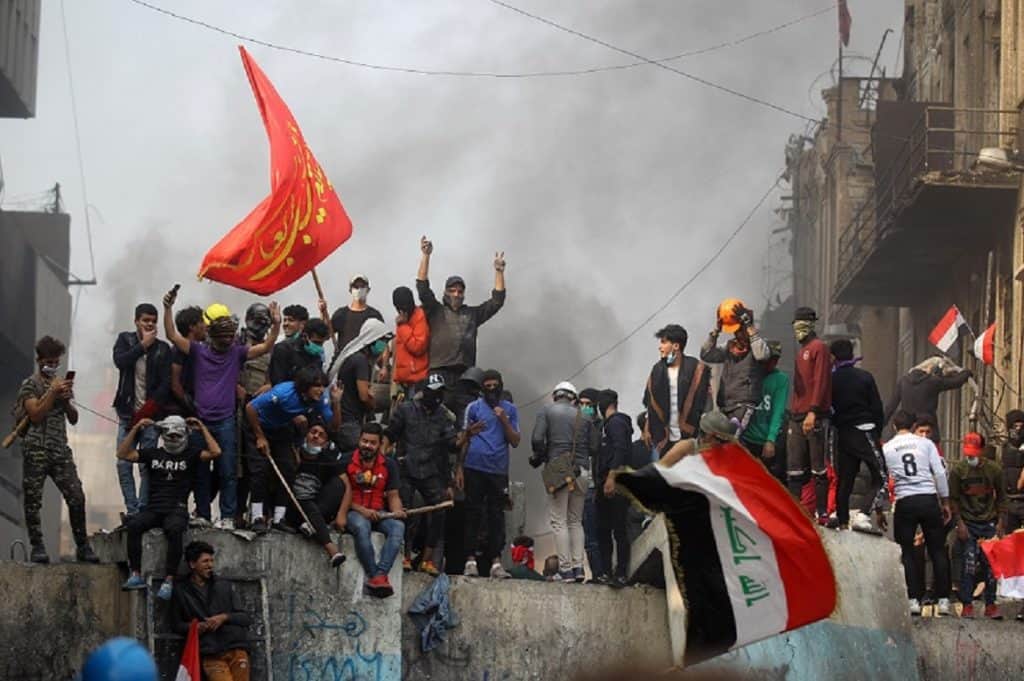In Iraq, social unrest continues, as a result of which, apparently, irreversible political processes can begin at the regional level. The Iraqi opposition, with the support of the United States and the Islamic State, seeks to use the situation to its advantage in order to weaken the central government. The current political vacuum increases the risk of a civil war in Iraq.
World Geostrategic Insights talked about such issues with Iraqi pro-government journalist Adel Mussa, as well as with Montadher al-Zubaidi, a leading analyst for the Global Citizen international social movement in Iraq.
1. The brutal murder of the Iraqi youth Haytam Ali Ismail on December 12, 2019, caused a new wave of social unrest, which is now unlikely to be stopped without the use of force. Khaitam Ali Ismail became the banner of “Iraqi unrest.” Is it really? What has changed in the Iraqi protest movement since the killing of Haytam Ali Ismail: have the protests become more radical, have new protest demands emerged?

ADEL MUSSA: The killing of Haitham Ali Ismail is a sign of a new turn in the Iraqi protest movement after the opposition has exhausted all means of provocation in order to draw the crowd into social unrest mainly in the southern provinces, where the Shiite population predominates. As a result of this, the organizers of the riots revealed their true face and intentions, which are aimed at the destruction of the state.
A special place in undermining Iraq is provided by the media, which, as a rule, create negative public opinion through lies, including in the international arena. Many events taking place in Iraq are significantly distorted by some correspondents. Take at least the information widely presented in international media about the allegedly coordinated attack of unknown militants on December 6, 2019 on the Sinak bridge in Baghdad, when, according to the media, dozens of people were killed and more than 130 people were injured.
So, many international news outlets claim that at least 20 people and at least 60 people died in this event. Thanks to this, we see how easily the media mislead the target audience about an incident that actually never happened.
In fact, as a result of a small brawl on December 6, 2019, only 3 people were killed on the Sinak bridge, among whom was the correspondent of the People’s Mobilization Committee Ahmed Mukhan.
By the standards of Iraq, this is an ordinary event. But it was presented in such a way that there was supposedly a tragedy that became the frontier in the development of the protest movement.
On December 10, 2019, a coup attempt was made in Iraq. A group of persons, under the command of former intelligence officer Menuf Abdel Rezzak al-Shammari, attempted to organize an armed offensive from Erbil, where Iraq’s opposition headquarters are located, in Baghdad. Only as a result of the operational actions of the security forces loyal to the central leadership of the country did we manage to neutralize this offensive.
Not recognizing defeat, the militants launched another provocation, which was to become the occasion for the start of a popular uprising. They defiantly killed the defenseless youth of Haytam Ali Ismail, and his corpse was hung up for public display on Al-Wathba Square in the center of Baghdad.
After the murder, many random protesters realized that they were trying to manipulate and drag them into armed struggle. For this reason, they refused to continue the protest and returned to their homes.

MONTADHER AL-ZUBAIDI: The killing of a young man caused a storm of indignation among all sections of Iraqi society, especially the demonstrators, because the crime was extremely cruel. According to some sources, Haytam Ali Ismail attacked the protesters, which led to his murder. However, there is also an opinion that he turned out to be an innocent victim, which was necessary in order to raise a rebellion against the background of social indignation.
In any case, almost all the protesters and their leaders condemned the crime. The organizers of the killing were arrested. This did not change the demands of the demonstrators, who still demand the trial of corrupt officials, changes to the electoral law, restoration of the prestige of the state and refusal of any foreign interference.
2. As a result of the exclusion of Mohammed Shia al-Sudani from the list of candidates for the post of Prime Minister of Iraq, the struggle for power in the country can begin between three applicants: Mustafa al-Kezami, who was the head of the National Intelligence Service, Raed Juhi, who served as Inspector General The Iraqi Ministry of Finance, as well as Ali Allawi, from 2004 to 2005, headed the Ministry of Finance of the Provisional Government of Iraq. Meanwhile, the last contender for the post of head of the Iraqi government can hardly be taken seriously due to his advanced age (he is now 72 years old). In addition, Ali Allawi has British citizenship, which is likely to be sharply criticized by the protesters. Consequently, the main election campaign will unfold between two candidates – Mustafa al-Kezami and Raed Juhi. Who do you think is more likely to become Iraqi Prime Minister? It is worth noting that Mustafa al-Kezami and Raed Juhi have equal opponents among the protesters for the reason that they are considered to be associated with the Hizb al-Dawa al-Islamiyya political party, which maintains relations with Iran and the Lebanese Hezbollah. How likely is it that during the discussion both candidates will be rejected by the protesters by analogy with the way it was done with the candidacy of Muhammad Shia al-Sudani?
ADEL MUSSA: I do not exclude that Mustafa al-Kazemi or Raed Juhi would be candidates for the next post in the Iraqi government. But the fact is that absolutely all the candidates from the list are rejected by the protesters for the reason that all these political figures, according to the demonstrators, are associated with corruption. And the President of Iraq is well aware that his list of candidates will be rejected.
All names represented at present are only “balloons”, a check of what will happen later with an agreement at the regional and international levels.
Please note that in Iraq, as in Lebanon, there is a practice of confessional quotas in the formation of the central government. This practice excludes manipulation without the consent of all faith groups represented in the country. Therefore, when determining a candidate for the post of head of the Iraqi government, the leaders of the faiths will have a decisive word.
MONTADHER AL-ZUBAIDI: It is true that Muhammad al-Sudani was categorically rejected, as were all the candidates on the original list.
Currently, over 18 people are applying for the post of Prime Minister of Iraq, among which the civil activist Faek Ali al-Sheikh begins to play a prominent role. However, the protesters have not yet nominated their candidates, which complicates the negotiation process and creates the basis for prolonging the political crisis.
On December 18, 2019, at the Al-Tahrir Square in Baghdad, the people rejected all candidates and reiterated that the candidate should be independent, not affiliated with any party. If the candidacy is still not determined, the Iraqi president will be appointed prime minister.
3. According to some Iraqi sources, the Islamic State, using social protests, has noticeably intensified in the province of Nineveh. In particular, it refers to attempts to revive the influence of a terrorist organization in Mosul, whose civilian population is subjected to significant pressure from ISIS. In turn, the commander of military operations in Nineveh, Major General Noman al-Zobaye, recently officially announced that the situation in Mosul is stable and the Islamic State does not threaten anyone. However, according to analytical data, including by the Russian security forces, the increased activity of ISIS is indeed observed in the Iraqi province of Nineveh, which became especially noticeable after the arrest on December 3, 2019 of the cousin of the leader of the Islamic State, Hamed Shaker al-Badri (Abu Khaldun ) What do you think about this? Is there really a risk of a resurgence of the Islamic State in Iraq amid social unrest? Recently, there was information that the US ambassador to Iraq, Matthew Tueller, met in Anbar province with Sunni volunteers who are being trained at a training camp near the city of Al-Habbaniya to organize social unrest, especially in Mosul. Is it possible, on this basis, to conclude that these Sunni volunteers whom the American ambassador met are militants of the Islamic State, who are now attempting to capture Mosul?
ADEL MUSSA: Prior to the October events in Iraq, the Alhurra satellite channel and some White House administration officials announced the possibility of a revival of the Islamic State. This danger does exist because jihadists cannot accept their defeat. However, our security forces, our army and our people are ready for any fight against ISIS.
The US is working hard with some Sunni leaders to take the initiative and try to push the Sunnis into the unknown. As we heard from the words of the American vice president during his recent visit to western Iraq, Washington is ready to provide them with money and weapons so that they can seize their opportunity and regain their rights. This is a clear call for a Sunni Shiite struggle.
MONTADHER AL-ZUBAIDI: ISIS uses every opportunity to attack Iraqi forces and seeks to regain some areas. But the armed forces of Iraq have become more powerful and decisive, as a result of which most attacks have been averted.
Regarding the security situation in the liberated areas, the inhabitants of Nineveh told me that the Iraqi military and civilians there are under pressure from the “sleeping” ISIS cells. which are very few in Anbar.
The media in Iraq did not cover the meeting of US Ambassador Matthew Tueller with Sunni groups in Anbar. In addition, the residents of these areas, for the most part, officially announced that they would support the demonstrations, but would not participate in them in order to maintain order there.
Image Credit: AFP







